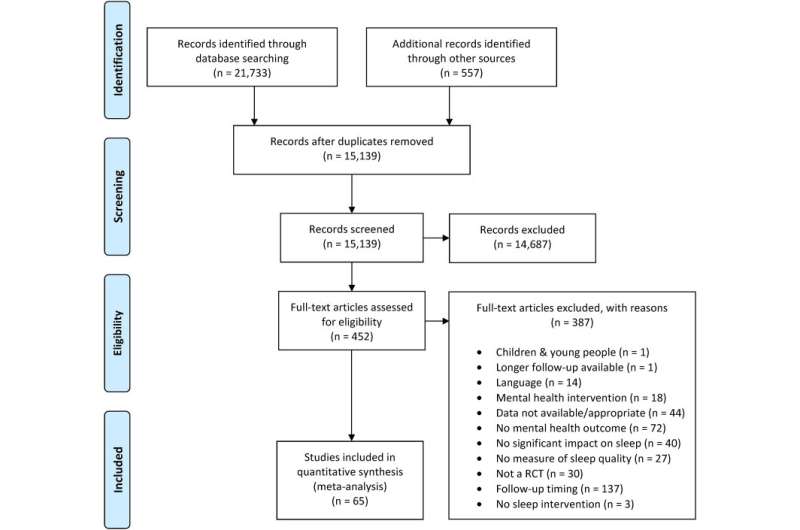
Improving sleep quality leads to better mental health and reduced feelings of depression, anxiety, and stress according to a major review undertaken by researchers at ScHARR, The Department of Psychology and The Healthy Lifespan Institute.
If you have problems sleeping or with your mental health, then you’re not alone. Both are incredibly common with around a third of the general population struggling with symptoms of insomnia, and around 17% of adults suffering from mental health difficulties—with cases set to rise.
Until recently it was assumed that mental health difficulties led to problems sleeping. However, the study published by Sleep Medicine Reviews found that improving sleep quality can also improve mental health.
The review, one of the largest of its kind, was led by Dr. Alex Scott and combined the results of 65 randomized controlled trials involving 8,608 people using a technique called meta-analysis.
Dr. Scott says that “we all know that poorer mental health can mean a poorer night’s sleep. However, recent evidence suggests that the reverse might also be true—that poorer sleep can also lead to poorer mental health. We tested this idea by combining the results of 65 randomized controlled trials that investigated whether improving sleep does indeed lead to better mental health.”
Researchers at the University of Sheffield also found that improvements in sleep provided significant benefits to mental health regardless of whether people had a physical health problem, and that improving the quality of sleep leads to a reduction in symptoms of stress, anxiety and depression, regardless of their severity. The findings point to the exciting possibility that improving sleep may help reduce the risk of developing, or worsening mental health difficulties.
“This was a large review of existing sleep research that incorporated a wide range of sleep interventions and a wide range of mental health outcomes. The evidence shows that by using techniques to get a better night’s sleep you can improve your mental health, especially for those experiencing depression, anxiety and stress,” says Dr. Alexander Scott, lead author of the study.
Given how likely it is that someone accessing mental health services is also experiencing problems with their sleep, the study emphasizes the importance of equipping health professionals with greater knowledge and resources to support better sleep as an essential next step to improve health outcomes for these common conditions.
University of Sheffield

